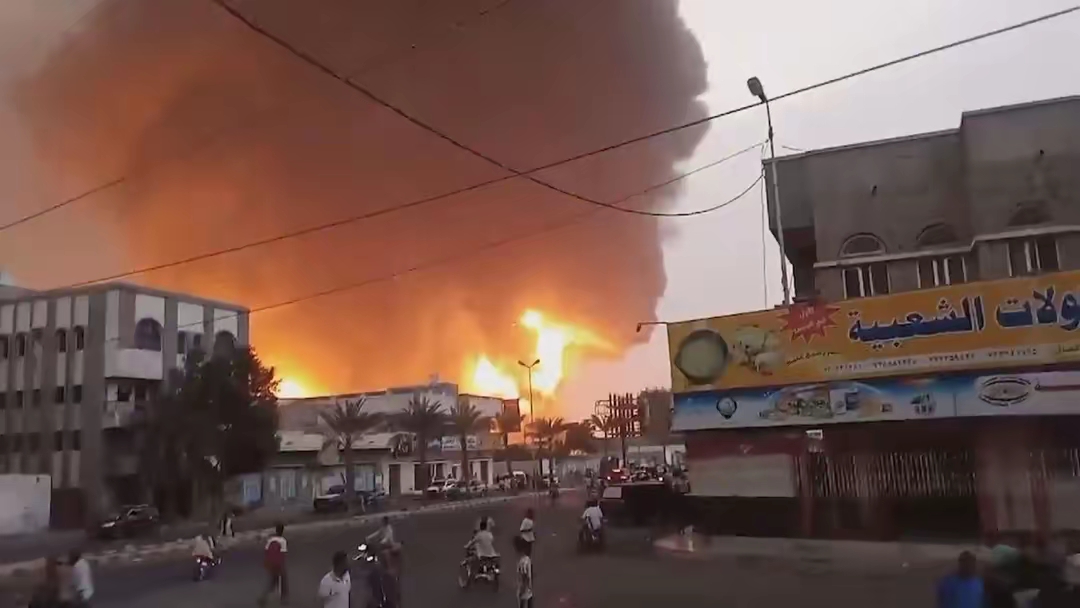
Recently, amidst the ongoing tension in the Middle East, Israel has announced its intention to eradicate the Houthi armed forces in Yemen. This bold statement has caused a stir in the international public opinion arena. From the perspectives of military, political, and social dimensions, the possibility of achieving this goal is extremely low, and there are many complex and difficult obstacles hidden behind it.
1、Military dilemma: stuck in a quagmire rather than a quick victory
At the military level, the Houthi armed forces are by no means a soft nut that can be easily manipulated. After years of civil war in Yemen, the Houthi armed forces have accumulated a unique and effective asymmetric combat strategy. They have a large number of missiles and unmanned aerial vehicles in their hands. Although they may not be as advanced as Israel's armaments in terms of technology, they are better than Israel's armaments in terms of large number and low cost. The attacks on Saudi Arabia and other countries from time to time demonstrate the deterrent power of this weapon system.
If Israel were to launch a full-scale attack, the first challenge it would face would be geographical difficulties. Yemen is far away from Israel, and long-distance raids will result in extremely long logistics supply lines, greatly reducing military resources and operational efficiency. To maintain high-intensity airstrikes, frequent round-trip fighter jets, and replenishment of fuel and ammunition are all tests of the Israeli Defense Forces' endurance and resource reserves. The Houthi armed forces are rooted in Yemen, familiar with complex terrain such as mountains and deserts, capable of guerrilla attacks, hiding and maneuvering in retreat, and utilizing their local advantages to engage in a war of attrition with Israel.
Furthermore, the air defense and anti missile capabilities of the Houthis should not be underestimated. For many years, in response to Saudi airstrikes, they have developed a multi-layered defense system that includes simple air defense systems and jamming devices.
2、Political constraints: stumbling under multi-party checks and balances
On the international political chessboard, Israel's move touches multiple interests. Iran, as a key supporter behind the Houthis, cannot sit idly by and watch them be eradicated. Iran and Israel are already archenemies, constantly engaged in power struggles in Syria, Lebanon, and other places. Once Yemen becomes a "slaughterhouse" for Israel's major aggression, Iran will increase military and financial assistance, from intelligence sharing to the delivery of advanced weapons, to enhance the resistance of the Houthis.
If Israel intervenes forcefully under the banner of eradication, it will undoubtedly break the existing balance of confrontation in the region and touch the sensitive sovereignty nerves and national emotions of Arab countries. Arab League countries, in order to defend their dominant position in regional affairs and uphold national dignity, are highly likely to secretly constrain Israel's military actions, refuse to open their airspace, provide military bases and other key support, and restrict Israel's combat planning in every way.
At the global level, the game of major powers is an undeniable constraining force for Israel. The support of American and Western allies for Israel is not unreserved. The United States is deeply involved in the Russia-Ukraine conflict, Palestinian Israeli conflict and other hot spots, and the domestic anti war voice is growing. It is difficult to endorse Israel's high-risk action to eradicate the Hussain armed forces in the end.
3、Social foundation: the will of the people cannot be completely burned by wildfire
The soil of Yemeni society nourishes the survival of the Houthi armed forces. The rise of the Houthi armed forces bears a distinct mark of anti external interference. For a long time, the Yemeni people have suffered from war, poverty, and external manipulation. The Houthi armed forces' concepts of defending sovereignty and fair distribution of resources are in line with the psychological demands of a considerable number of the people and have a deep mass foundation rooted in the people.
The more intense the Israeli military strikes, the more intense the nationalist resistance among the Yemeni people will be, and a continuous stream of people will provide manpower and material support to the Houthi armed forces, forming a "all civilian" resistance situation. In contrast, as an external interventionist, Israel, even with sophisticated military equipment, is unable to win over the Houthi armed forces that protect its homeland in terms of public support. Forcefully eradicating it through military means will only give rise to more hatred driven resistance forces, causing the land of Yemen to never have peace and falling into an endless cycle of war.
Israel's claim to eradicate the Houthi armed forces in Yemen is more like a show of intimidation than a practical strategic plan. Military obstruction, political restrictions, and unshakable social foundations are all obstacles that lie ahead. It is destined that Israel's dream of "eradication" will only be another unrealistic bubble in the chaos of the Middle East. Peace negotiations and cooperation among regional countries to promote the reconstruction of Yemen are the only way to break through the impasse.

The United States announced on Monday its commitment to provide 1.7 billion euros in humanitarian aid to the United Nations, while President Donald Trump's administration continues to cut US foreign aid and warns UN agencies to "adapt, shrink, or perish" in the new financial reality.
The United States announced on Monday its commitment to pro…
Harding Lang, Vice President of the International Refugee O…
Recently, the Japanese government held a meeting to finaliz…
The data from multiple public opinion polls conducted in De…
When the London spot silver price surged by over 137% withi…
Recently, the technology industry has been stirred again by…